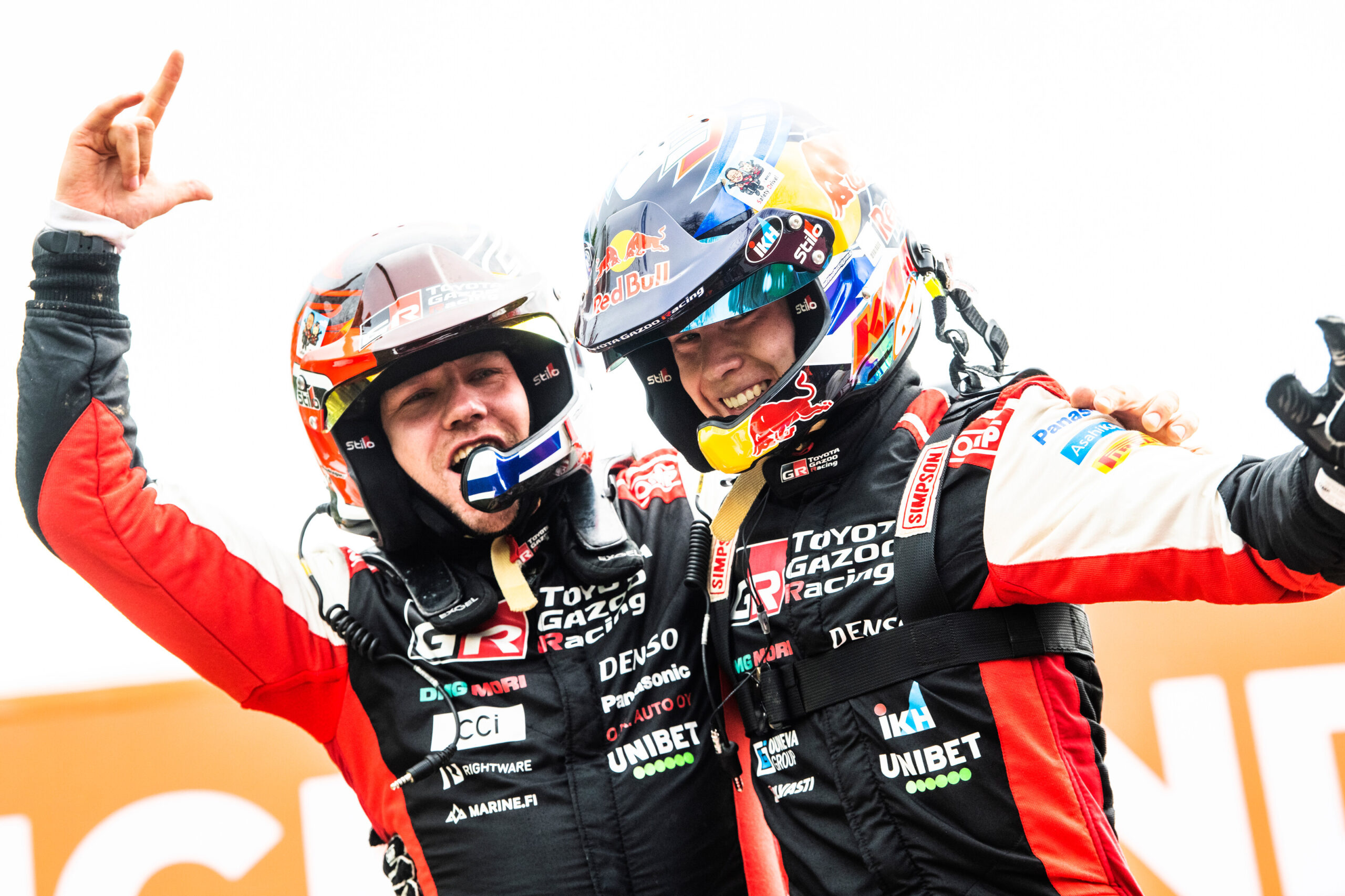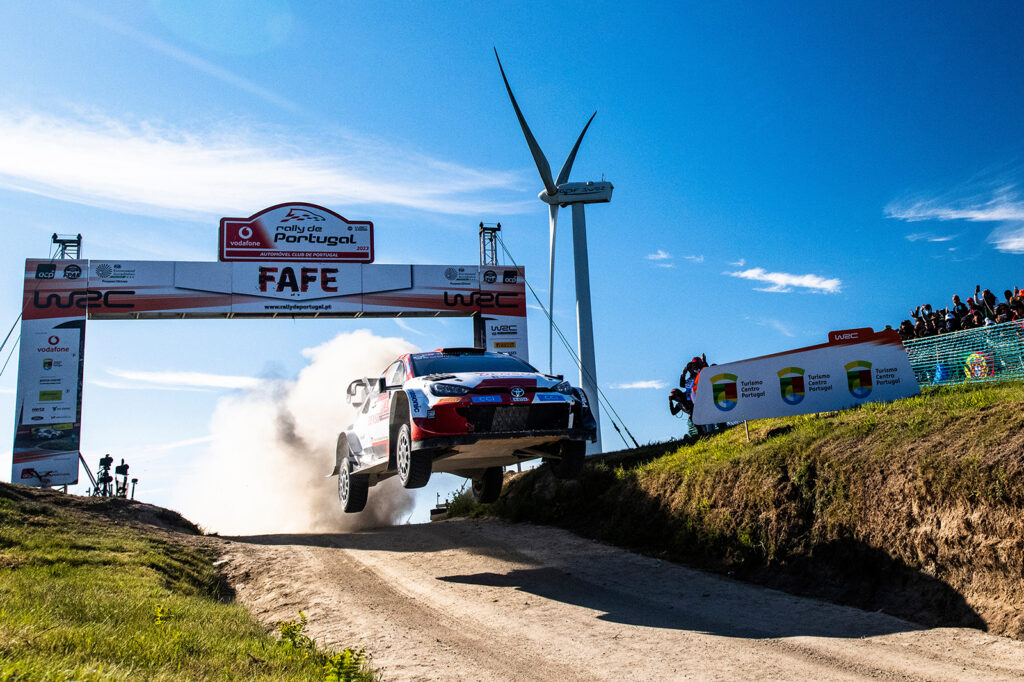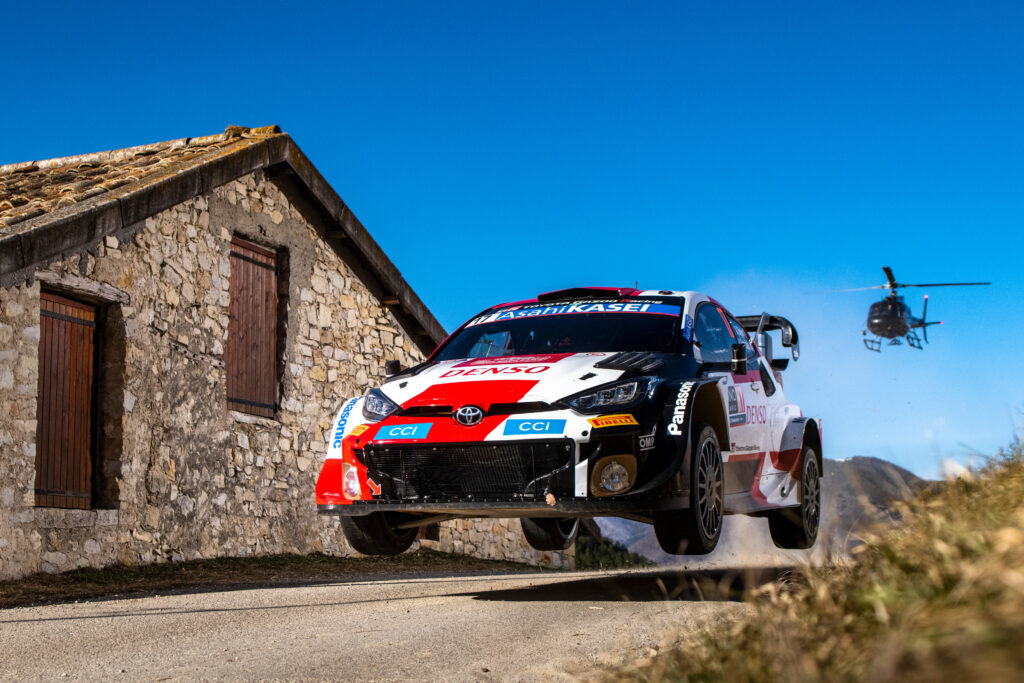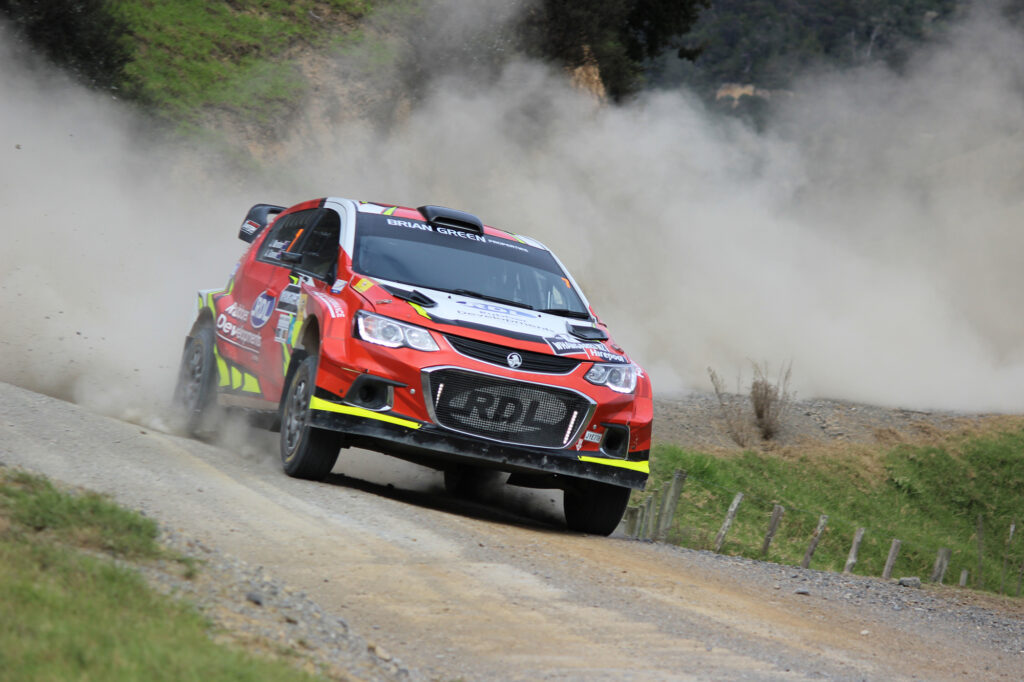Sitting at the stop line on the Col de Turini on Thursday evening at this year’s Rallye Monte-Carlo, Kalle Rovanperä looked anything but comfortable.
It was the debut of the long-awaited hybrid-powered Rally1 cars. New cars, new technology, and, with Sébastien Ogier only committing to a part-time schedule, a guaranteed new champion at the end of the season.
“I think the balance of the car is really tricky for me to drive,” Rovanperä said of his GR Yaris after dropping 42.8sec across 23.25 kilometres on the second stage of the WRC’s 50th anniversary season. “It’s quite difficult for me.”
Things soon began to look up for the young Finn. Having ended the opening pair of stages way down in 12th overall, he climbed to ninth on Friday and by Saturday was setting stage-winning times.
Ending Rallye Monte-Carlo in fourth place, perhaps Rovanperä hadn’t made such a bad start after all.
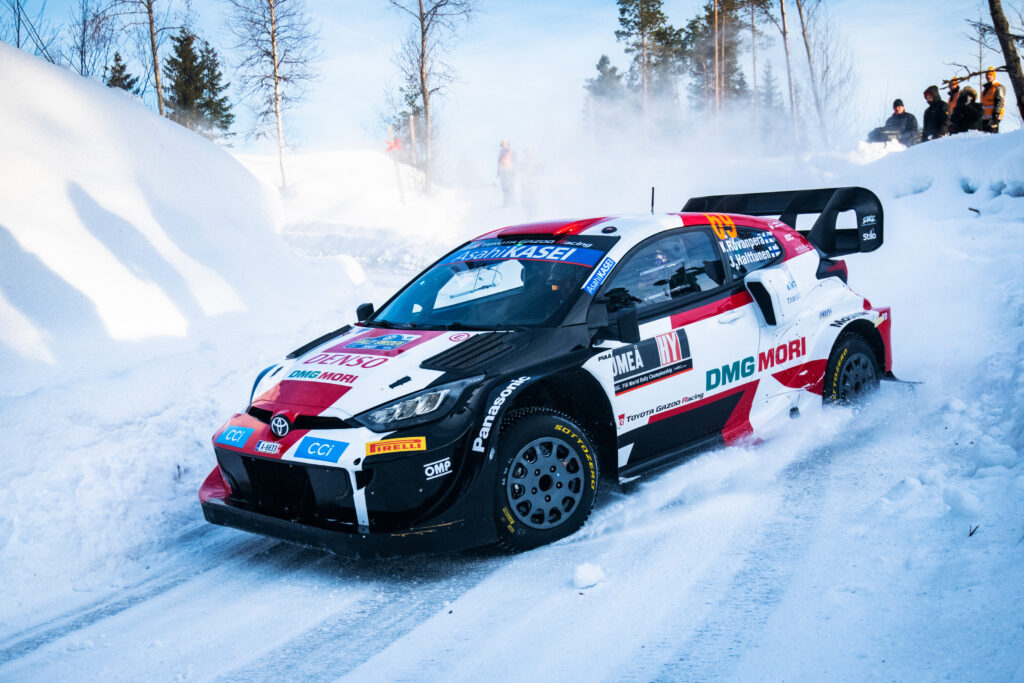
It was one month later in Umeå when Rovanperä really established himself as a serious title contender. Opening the roads on the snow and ice of Rally Sweden, he managed his studded Pirelli tyres to perfection to end Friday’s opening leg just behind Thierry Neuville.
When Saturday came, he pounced – taking the lead on the very first stage and holding off charging team-mate Elfyn Evans to remain at the fore.
A nighttime attack made all the difference when, under darkness, Rovanperä threw caution to the wind, extending his advantage over the Welshman from 1.2sec to 8.3sec heading into a short final day.
When Evans slammed into a snowbank, it was game, set, and match. Rovanperä emulated the actions of his father Harri from 21 years prior to taking career victory number three.
Now he was on a roll. April’s Croatia Rally – the first asphalt fixture of the hybrid era – produced some of the most thrilling scenes the WRC had seen in a long time.
Rovanperä led from the start only for a storm in the penultimate speed test wiping out his hard-earned advantage.
A resurgent Ott Tänak, whose gamble on softer Pirelli tyres gave his Hyundai i20 N a performance edge on the streaming asphalt, grabbed a 1.4sec lead before the Wolf Power Stage – but the Yaris driver threw caution to the wind and remarkably overturned that deficit to win by 4.3sec, extending his points lead to 29 after just three rounds.
The hat-trick was completed just weeks later at Vodafone Rally de Portugal. After trailing Evans for the opening two days, Rovanperä relegated his teammate late in the penultimate leg.
He extended his advantage further on Sunday – winning the rally and taking five bonus points on the Wolf Power Stage to leave Porto 46 points ahead.
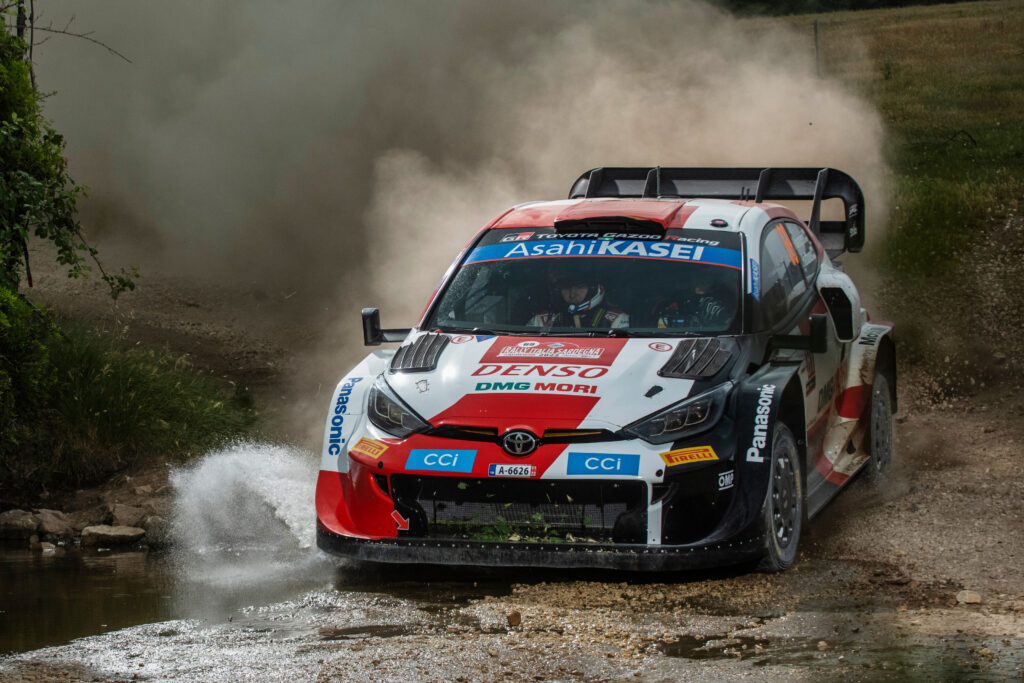
Rally Italia Sardegna was a tricky one. With one eye on the championship, Rovanperä had the dubious task of opening the road on Friday and he struggled for traction on the loose gravel stages.
An improved road position later in the rally enabled the Finn to climb the order but he was never really in the podium battle and eventually settled for fifth overall – still the highest-placed Toyota on a disappointing weekend for the team.
Despite that, he did extend his championship advantage by nine points after Evans stopped with suspension trouble.
Rovanperä, co-driven by long-term partner Jonne Halttunen, was soon back to winning ways at Safari Rally Kenya.
Undeterred by feeling unwell, he seized the top spot from team-mate Ogier on Friday afternoon and was unchallenged from then on – heading a historic 1-2-3-4 for Toyota Gazoo Racing.
“Of course, this win is a bit more special than the other ones,” he said after the rally. “To also be the winning car in a result like this – it’s just fantastic.”
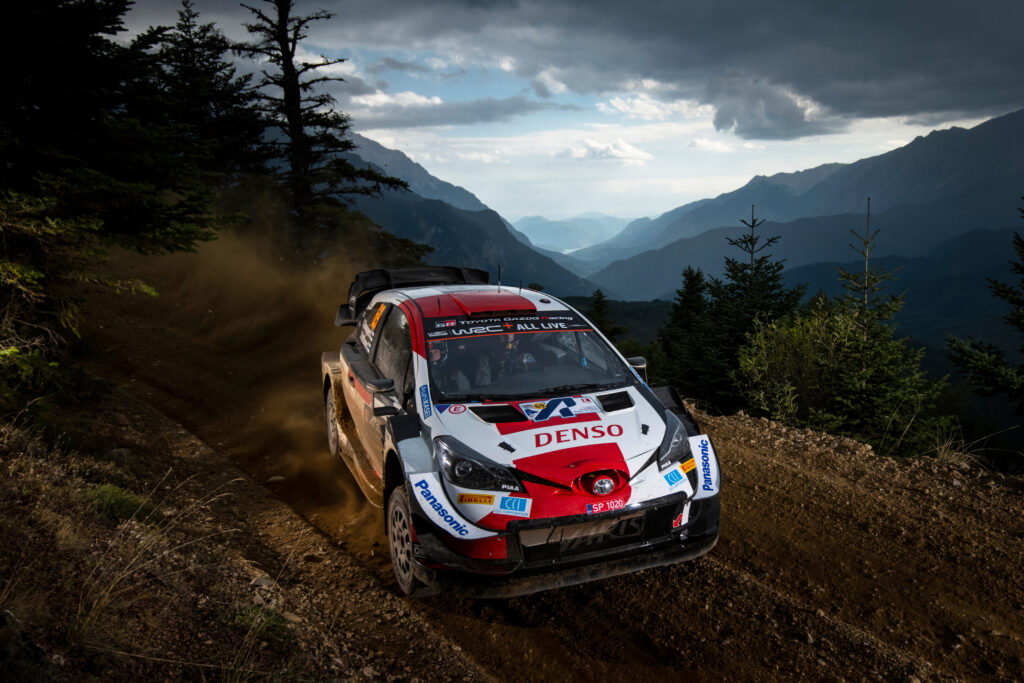
Rally Estonia was equally successful. Returning to the site of his maiden FIA World Rally Championship victory 12 months prior, Rovanperä grabbed the lead on Friday afternoon before reeling off seven-consecutive fastest times in inclement weather on Saturday.
Arriving at the finish more than a minute clear of closest challenger Evans, and with another Wolf Power Stage victory to boot, Rovanperä’s championship lead now stood at 83 points just seven rounds in.
With a five-year drought since a local driver had won Secto Rally Finland, the pressure was on for Rovanperä’s home WRC round. But the Finnish celebrations were put on hold as he finished second overall to Ott Tänak, who enjoyed a fresh turn of speed with his Hyundai.
Ypres Rally Belgium presented the first mathematical opportunity for Rovanperä to seal the title but, for the first time all season, the youngster showed he might be human after all. Overcooking a left-hander on Friday’s opener, his Yaris slid into an infamous ditch and rolled spectacularly.
A monumental effort by Toyota’s mechanics enabled Rovanperä to rejoin and salvage maximum Wolf Power Stage points, although his points advantage over Tänak – who won the rally – was cut to 72.
It was a similar story at EKO Acropolis Rally Greece. Languishing down in ninth overall after a poor opening day, Rovanperä’s car sustained heavy rear-end damage when he sideswiped a tree. He crawled back to service and the team repaired the car, but the damage was done and he finished a lowly 15th.
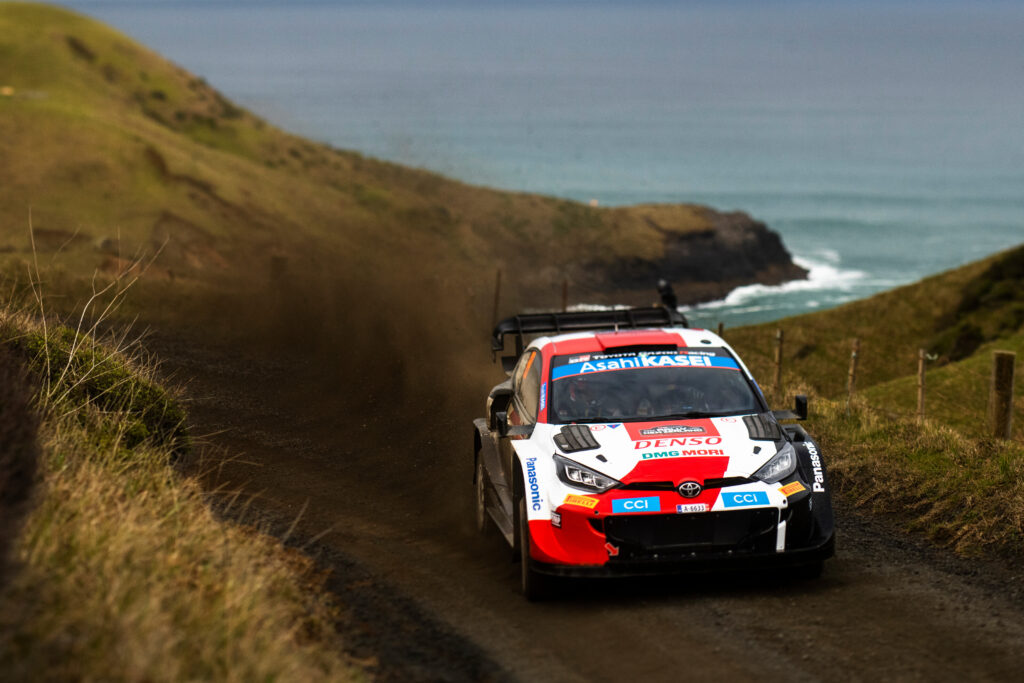
When the WRC returned to Repco Rally New Zealand following a 10-year hiatus, there were question marks over whether Rovanperä would be able to end his bad run of form and do enough to take the title down under.
On paper, he needed to outscore Tänak by eight points to get the job done. By winning the rally, however, he would require just seven more than his rival in the 11th round.
Tänak started strongly and led after day one, but a 15-second penalty for two hybrid rule breaches for the Estonian provided an unexpected birthday gift for the now 22-year-old Rovanperä. He pulled clear from the chasing pack to carry a comfortable buffer into Sunday’s four-stage finale.
The victory was never really in doubt – but the job wasn’t done yet. With Rovanperä the only driver yet to complete, Tänak held the benchmark time for the Jack’s Ridge Power Stage. To secure the crown, Rovanperä needed at least two bonus points, which would mean being at least fourth-fastest through the stage.
His response? Full send.
Rovanperä’s time for the 6.77km test was six-tenths of a second quicker than Tänak’s – making him the youngest WRC champion in the sport’s history aged 22 years and one day.
We’ve witnessed the Séb era – could this be the start of the Kalle era? Only time will tell. One thing, however, is certain – he’s got age on his side.
Story thanks to WRC.COM – images thanks to Jaanus Ree

